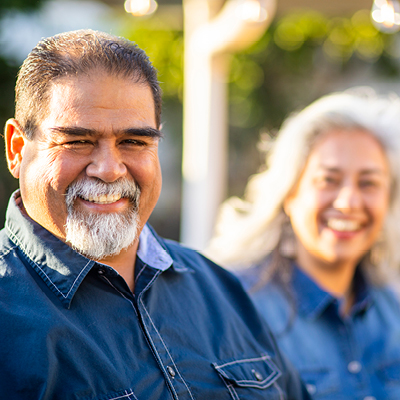Hispanics and diabetes: Are you at a higher risk for developing diabetic wounds?
Posted November 18, 2018 by Drazen Petrinec, M.D. Summa Health Vascular Surgery

Type 2 diabetes is at an all-time high in the United States. One of three types of diabetes - a disease that causes your blood glucose levels to rise higher than normal - type 2 has a direct correlation with your choices in diet and the amount of physical activity you do on a regular basis.
Did you know that the CDC estimates 40 percent of all US adults have type 2 diabetes? Another staggering statistic: 50 percent of all U.S. Hispanics will develop this disease and they are twice as likely to die from it. More than 30 million Americans have diabetes and 1 in 4 don’t even know they have it.
A majority of the food we consume is turned into blood sugar that our bodies use or store for energy. The pancreas makes a hormone known as insulin to help get the blood sugar into our body’s cells. A diabetic’s body has either stopped making enough insulin or cannot use its own insulin as well as before. When that happens, the blood sugar begins to build up and it can lead to some serious complications: heart disease, vision loss, nerve damage, chronic kidney disease, gout and wounds that don’t heal or take much longer to heal.
More than 1 in 3 adults have prediabetes, which means your blood sugar levels are higher than normal but not high enough to be type 2 diabetes. With lifestyle changes, an individual can hit the brakes on developing type 2. However, the long-term body damage can begin in this prediabetic stage. In this “pre” stage it is very important for an individual to make changes to diet, begin or reevaluate your fitness plan and maintain a healthy weight. Prediabetes affects both children and adults but can be mitigated with the same lifestyle changes.
Bumps, bruises and scratches are a part of our daily life. But for individuals with type 2 diabetes, a wound can turn very serious very fast. Hispanics have an elevated risk for developing the disease and according to the CDC, statistically less likely to seek medical care or implement lifestyle changes when necessary.
How does type 2 diabetes affect the wound healing?
- An elevated blood sugar level is the most common symptom of diabetes. When sugar levels rise in the blood, it can lead to hard and narrow blood vessels. When the skin has been punctured by a scratch or bump, blood vessels need to work extra hard to heal the wound.
- Poor circulation can exacerbate the healing process even further. When it’s harder to pump blood through vessels, it’s also harder to get oxygen to a wound. The red blood cells that carry nutrients to body tissue are also restricted; that can lower the efficiency of white blood cells against wound healing.
- Nerve damage can lead to a loss of sensation in the body, also known as diabetic neuropathy. This happens when diabetic patients lose sensation in certain areas of the body, most commonly in the leg or foot area. Because an individual may not feel an injury occur, the severity of a wound can progress rapidly or not heal at all.
- Diabetic foot ulcers happen with at least 15 percent of diabetic patients. They are painful sores that can ultimately lead to amputation.
Making healthy lifestyle changes is one of the best tools a type 2 diabetic can use to control the disease. A few additional tips to help heal wounds quickly and prevent infection:
- Always wear clean, breathable socks and avoid walking barefoot.
- Wash feet daily, pat dry with a cotton towel and apply fragrance-free lotion.
- Always keep toenails trimmed and wear comfortable shoes and have your primary care physician always check them at checkups.
- Self-checks are a great way to watch for wounds. The earlier you spot something, the quicker you can stop the progress of infection. Make it a part of your morning or evening routine so you’re checking in every day.
- If you do have a wound, keep dressings fresh and avoid applying pressure.
If you experience any tingling, burning, loss of sensation, serious pain or swelling, see a doctor immediately. You should also consult your doctor if you do not see the wound healing or improving after a week.
Any patient with a wound that has not begun to heal within 2 weeks or is not completely healed in 5 weeks may benefit from participation in wound care therapy. Summa Health Wound Care offers a supportive, patient-centered and team-based approach to wound care therapy. By partnering with referring physicians, we assist patients with learning how to manage their condition and heal their wounds. Call one of our convenient locations. In Akron call 330.375.6363 and in Barberton call 330.615.3906.
Dr. Drazen Petrinec
Vascular Surgery
About the Author
Vitality eNews Sign Up
Receive the Summa Health eNewsletter for the latest health tips, advice and updates.


 Listen to this episode of the Healthy Vitals Podcast featuring Drs. Yoleetah and George Ilodi.
Listen to this episode of the Healthy Vitals Podcast featuring Drs. Yoleetah and George Ilodi.